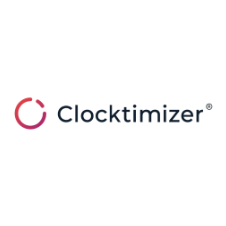Clocktimizer: Why Data Governance shouldn’t be sending you to sleep
Data Governance has had something of a resurgence in public consciousness in recent years. Horror stories of Amazon and Google using humans (rather than the more impersonal AI) to listen to your conversations to optimise performance have taken over the media. In large part, poor communication about who or what uses your personal information have fuelled these stories. But data governance (and its relative importance) is about more than just how we use data. It is about why we use data. For this very reason, law firms around the world should have a data governance plan in place. In this four part series, we look at why data governance shouldn’t be sending you to sleep. We explore some of the ways data governance can support and improve Legal Project Management. Finally, we show how solid data is the essential link between pricing and profitability.
Data, data everywhere
The Information Governance initiative defines data governance as “the activities and technologies that organizations employ to maximize the value of their information while minimizing associated risks and costs.” At Clocktimizer, we feel it is important to focus on the middle section of this definition; to “maximise the value of their information”. Most law firms nowadays, indeed most businesses, understand the importance of information governance in terms of security and fair usage. Law firms, for the large part, embrace two factor authentication, the importance of VPNs and only using client data where necessary. Data governance, as the protection and stewardship of data, is a well-worn topic. However, many firms still have yet to take advantage of the benefits data can provide in terms of insight.
Law firms collect such a monumental amount of data, in such a variety of forms. Good Data Governance is about more than storing this information in a safe way. It is about providing principles and aims to which this data can work. As Meredith Williams-Range, Chief Knowledge and Client Value Officer of Shearman and Sterling shared:
“Combining all the data that firms produce internally with external data sources can inform strategic decision making, support investment decisions and can pinpoint where new business opportunities exist, transforming data into intelligent action”
CIO Review
Improve how you measure things
So where can good Data Governance add value? In law firms, we see three key ways for Data Governance to enhance existing operations. First, it can improve tracking and measuring activities within law firms. Second, it can improve and speed up the decision making process. Finally, it can increase the effectiveness of the firm itself by improving team performance and profitability.
At Clocktimizer, the benefit of good Data Governance is close to our hearts. It is one of the main reasons behind the development of our platform. After all, many law firms have been hampered by the lack of data when attempting to measure or compare matters. Without a Data Governance plan, the data collected by law firms can be stored in difficult to use silos. Often the data is saved in multiple formats, which are often incompatible with tools which look to analyse it. By working out in advance a singular data storage format, and a set of rules about input values, firms can ensure they are able to compare and contrast matters. Tools like Clocktimizer can be used to measure whether the introduction of new processes or efficiencies has been effective. A Data Governance plan which defines how and where you store information, makes it easier to use and analyse the data later.
Speed up your decisions
The second benefit of Data Governance is about speeding up the decision making process. Law firms are no stranger to drawn out debates. But time spent not acting, is time wasted. Research shows that “companies using governance and MDM are 65 percent more likely to see an accelerated time-to-decision”. Data Governance policies not only help firms to prioritise information, but also integrate it in the decision making process. The use of data to inform choices leaves us less likely to rely on supposition and more able to clearly identify good choices from bad choices.
Improve team performance and profitability
Finally, good Data Governance increases the effectiveness of law firms. A Data Governance policy should identify core goals that data can support you in achieving. By identifying these goals, and considering what data is needed (and why) law firms can improve and streamline the way they function. At Clocktimizer, we bring together all the key matter management metrics into one easy to manage dashboard. In doing so, teams can ensure they stay on track in terms of budgets, and keep clients up to date through automated emails. This clever use of data streamlines the matter management process, reducing cost overspend and wasted time.
Build a framework and then start asking questions
Every firm is unique, so sadly there is no one-size-fits-all policy. However, building a robust Data Governance policy doesn’t have to be difficult. Start by asking yourself what your firm’s overarching goals are. Is it to improve client relationships? Is it to improve your profitability? Is it about excelling in a single practice area? Once you have identified these goals, look at what information can inform or support them. Finally, look at how you collect, store and analyse that data. In this way you can build a comprehensive Data Governance structure which supports your firm’s long term goals. For more information on how you can collect, clean and analyse data, download our free e-book on Machine Learning.
Next week – why phase and task codes are lazy data
Having identified why Data Governance is important, we look at one of the ways you can improve the quality of your data collection. By getting rid of phase and task codes!



